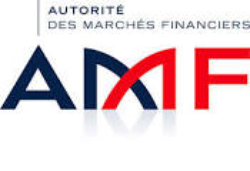Compliance and Regulation Law bilingual Dictionnary

In an ordinary market of goods and services, access to the market is open to everyone, whether it is the one who offers the good or service (potential supplier) or who wants to own it (potential applicant ). Freedom of competition presupposes that these new entrants can, at their will, become effective agents on the market, the potential supplier if its entrepreneurial dynamism drives him there, and the potential applicant if he has the desire and the tools to do it(money, Information and proximity, in particular ; but first of all, money). The absence of barriers to entry is presumed; a barrier resulting from anti-competitive behavior will be penalized ex post by the competition authority.
The barrier is therefore what undermines the principle of access to the market. This is why the World Trade Organization (WTO), in that it fights against barriers to ensure global free trade, can be regarded as a forerunner of a sort of World Competition Authority.
But it may happen that it is necessary to organize by the force of Law the market access in a first situation, when there has been a liberalization decision of a previously monopolistic sector, access can not be exercised solely by the strength of demand and the power of potential new entrants, notably prevented by the de facto power of the formerly monopolistic enterprises. The Regulatory Authority will build access to sectoral markets whose sole principle of Competition has been declared by Law. Secondly this necessity can also result from phenomena that definitely impede this ideal competitive functioning of the sector, such as natural monopolies or asymmetries of information: Law will make this access concrete by distributing rights of access to the interested operators.
This is the case in network industries for operators' access rights to essential infrastructure networks. Even if this act is carried out by contract, this contract merely crystallizes a right of access conferred by the Legislator to the operator in order this one can penetrate the market. This is particularly true in the energy and telecommunications sectors.
In a more political way and not directly related to a desire to set up competition or to compensate for a market failure, this access organization may still be required because there is a political decision to provide everyone with access to common goods. The decision then goes hand in hand with the notion of a "fundamental right", such as the fundamental right of access to the healthcare system or vital medicines, or the fundamental right of access to the digital system, which the Regulator becomes the guardian in Ex Ante but also in Ex Post.

Accounting is a kind of photography of the "value" of the company, of its heritage, balancing its assets and liabilities but also integrating its past activity but possibly its future activity. Accounting, an information tool, becomes a tool not only for the manager, the shareholder, the co-contractors, but also for the present or future investor, that is to say the market.
Classical accounting, of German origin, valued the company's assets at their historical cost (for example the purchase price of goods), but the new accounting standards, under British influence and through the proposals of the International Accounting Standards Board (IASB), wanted to bring together the notion of value and that of the market. Indeed, a property has a value corresponding to the price that a potential buyer will give it and not to the price that its current owner has paid to acquire or control it. This notion of fair value or market value has led to the valuation of assets at their net asset value. We have therefore come closer to more exact prices, in line with the very notion of competitive prices but also extremely variable with the markets, the financial markets themselves being disconnected from the real economy by speculation. As a result, weakening markets weakened balance sheets and a domino effect playing between balance sheets and markets, especially with regard to banks, greatly contributed to the 2008 financial crisis. However, while financial activity did not cannot be thought of apart from an accountancy playing a central role in the information and in the confidence of the investors, the basis of the current accountancy, inseparable from the regulation of the banking and financial market, has not been replaced for the moment.

On the one hand, repression is the prerogative of the State which expresses it through the Criminal Law. Even though the administration has always exercised a power of sanction, the constitution of a kind of new branch of law, the "Repressive Administrative Law" was born from the regulatory Law.
Indeed, it was necessary that the Economic and Financial Regulatory Authorities should be established so that the idea of an administrative police, whose deployment must be effective, implies a continuum between the Ex Ante and the Ex Post, this Ex Post taking the first form of repression (next to the fonction of the dispute resolution).
The repression exercised by the Regulator, which itself has the institutional form of an Independent Administrative Authority (IAA), is expressed by Repressive Administrative Law. This Repressive Administrative Law is of a different conception of Criminal Law since it aims to reinforce the effectiveness of the Regulation of the sectors. Therefore, the French Constitutional Council (Conseil constitutionnel) was able to state in 1981 that criminal and administrative penalties were not like "in nature", the first aiming at punishing wrongdoing while the latter were aimed at yo regulate economic systems, except to respect the principle of proportionality. But this Constitutional Council in 2015 conceived rather the identity of the two repression and concluded the prohibition of punishing twice the same operator for the same fact (Non bis in idem). The two rules bodies are therefore mirrored.
The administrative power of sanction is essential for a regulator, ensures the effectiveness of the prescriptions it issues and the legislator keeps increasing this power. At the same time, it has become possible for operatoirs in recent years to agree on commitments and to avoid sanctions. This mechanism of "administrative composition" is not contradictory because, as the repression, which it arrests nevertheless, it ensures the effectiveness of the Regulation.

The concept of 'Agency', sometimes confused with the one of 'Regulator', designates a way of deconcentrating the State. Away from a French Jacobin outlook, states have indeed gradually devolved their sovereign responsibilities to other institutions, which are often geographically distant from the state's political capital city. These agencies are a form of technical decentralization because they are in charge of operational tasks and specific expertise, e.g., as regards employment, environment or health issues. This model, which is very common in Scandinavian countries, is often associated with federal structures, like in the United States. It is still fairly remote to the French model that remains to this day built on the idea of a centralized and unified State. So far, France has only developed a few agencies (e.g., France Trésor, tasked with managing France's government debt and cash positions).
In a different perspective, although the two notions are homonyms, the American financial theory developed the notion of 'agency' to describe the relationship between the corporate officer (the agent) and the shareholder (the principal), who empowers the first to act on his behalf to serve his interest. Information asymmetry and conflict of interest mark this relationship, which explains that this theory helped developing multiple safeguards, conveyed by the Financial Regulation.

The airline industry was the first regulated sector in the 1920s This reflects the fact that air transport implies that people can travel from one state to another state, which justified an early multilateral system of international agreements between States , under public international law, each retaining its share of sovereignty and its national company (eg. British Airways).
But the principle of competition making the organization more complex through the mechanisms of open sky that allow an airline company to offer its services abroad, regulation must be more open to competition.
In addition, the regulation of air cares more risks by adopting global safety standards to be imposed on all operators in the conduct and maintenance procedures of the equipment.
Articulation du règlement des différents par le régulateur et le juge de contrôle
Articulation du règlement des différents par le régulateur et le juge de contrôle
Asymmetry: asymmetric regulation / asymmetry of information

Autorité de la Concurrence (Competition Authority)

The competition authority is generally an independent administrative authority (AAI). This is the case in France with the Autorité de la Concurrence (ADLC) which succeeded the Conseil de la Concurrence and which, like it, was designed to intervene ex post. Whatever the market considered, thus benefiting from almost universal jurisdiction over any economic activity of production, distribution and service, it can be seized or even self-seized when elements of anti-competitive behavior are alleged. The competition authority does not monitor the markets as such, nor does it build them or maintain their balance. These functions are precisely devolved to regulators. We can thus see that the competition authority has a much broader competence than that of the regulators, since the latter's office is limited to a sector while, conversely, the competition authority has a much weaker power than that of the regulators. regulators, since it has no ex ante powers and only intervenes on an ad hoc basis.
This distinction in no way precludes coordination between regulators and the competition authority, in particular because they can reciprocally transmit cases or information to each other, just as they can solicit each other for their respective opinions. The more competitively mature the sector for which a regulator is responsible, the more active this collaboration will be, as can be seen in telecommunications.
But things are not so simple, we will take two examples: first, the competition authorities, whether French (since the law on the modernization of the economy - LME of August 4, 2008 ) or European since the Community regulation of 1985, the competition authority operates merger control. This considerable function and power consists in assessing the conformity with the law of the will of two companies to come together (for example, by a merger). But, insofar as the competition authorities very often put conditions to accept the concentration, for example disposals of assets or behavioral commitments, we arrive at a kind of economic and industrial mechanic operated ex ante, comparable to a regulatory power. These commitments are in fact negotiated between companies and the Competition Authority: what are presented as unilateral conditions appear to be a kind of contract. More generally, the more the competition authority develops the technique of commitments, including with regard to anti-competitive practices, the more it contracts its behavior vis-à-vis companies, renouncing sanctions, that is to say abandoning its attitude ex post, to organize a new situation for the company adopted by it through its commitments, the competition authority then acting ex ante, behavior characteristic of a regulator.
Secondly, the European Commission, a multi-headed organization, on the one hand sanctions anti-competitive behavior and operates merger controls, and on the other hand, drafts the texts of the directives of the community regulations that the European Parliament and the European Council will adopt thereafter. However, in the regulated sectors, the European Commission adopts and writes dozens of directives and regulations to such an extent that it has become accustomed to designing them by “package”, apprehending developments in energy or regulation. environment, banking or telecommunications, etc., by packages containing several directives and regulations. In these texts, which therefore come under ex ante, the regulatory organizations of the sectors are deeply affected. This sort of Janus that the European Commission constitutes means that it is, at European level, both the Competition Authority and the Regulatory Authority. However, national competition authorities tend to claim that they are "small European commissions", which reinforces their tendency to want to regulate the economy. They come to propose in texts of “soft law” the concept of “competitive regulation”, which constitutes an oxymoron.
Autorité de Régulation des Activités Ferroviaires et de la Route (ARAFER)

The law of December 8, 2009 created the Regulatory Authority for Railway Activities, ARAF. The law of August 6, 2015 (known as the "Macron law") extended its powers on road issues, which justified the modification of its name, now the Railway and Road Activity Authority, ARAFER.
The function of this regulatory authority is to support the liberalization of the economic activity of rail transport, first of all freight, then passengers, to end the monopoly of the historical operator, SNCF. This regulator is necessary so that new entrants can fight against the power of an incumbent operator, because it is a network industry and transport is an economically natural monopoly. The 2009 law transferred the ownership of the network to a public establishment, Réseau Ferré de France (RFF) separate from the main public operator, but the 2015 law created a "public rail group" with a holding company. having operational powers, restoring powers to the SNCF, in particular through the stations. The Regulator has issued a reserved opinion on this matter.
The regulator ensures non-discriminatory access for competing operators to these essential facilities. ARAFER is an AAI, composed of 7 members, appointed for six years. It has broad investigative powers, can be consulted on any draft law on rail transport and on investment programs in the network. It also has the power to impose penalties on operators.
Autorité de Régulation des Communications Electroniques et de la Roste (ARCEP)

The Autorité de Régulation des Communications Electroniques et de la Poste (ARCEP) is an independent administrative authority (AAI). In 2005, it took over from the Autorité de Regulation des Télécommunications (ART), which was created in 1996. ART was the first regulatory authority of its kind, inaugurating under the impetus of European Union Law the wave of liberalization of previously monopolistic sectors. ARCEP has a broader competence than that of ART, also regulating postal activities and its role is to promote the exercise of "effective and fair competition for the benefit of users", which brings it particularly close to the general office of the Autorité de la concurrence. This regulator must still take into account the "interest of the territories" and user access to services and equipment.
ARCEP has jurisdiction to regulate what carries information (container) while the Conseil Supérieur de l'Audiovisuel (CSA) has jurisdiction to regulate the information transported (content). This distinction between container and content therefore forms the basis of the duality of regulators. But in the first place it is fragile and little used abroad, other countries preferring to have a single regulator for the container and for the content, insofar as the information can pass through various containers (e.g. television or the telephone) as in the United States (Federal Communication Commission - FCC). Second, the Internet makes it difficult to handle this distinction. This is why the hypothesis of a merger of the two French regulatory authorities is sometimes mentioned.
ARCEP monitors wholesale markets, in which operators must behave in a non-discriminatory manner and publish a reference offer. It controls prices and forces a price orientation towards cost, favoring downstream, that is to say (retail market), competitive dynamism. On this, the regulator ensures access to the transmission network and the distribution network to the end consumer (local loop issue). ARCEP has the power to allocate frequencies to operators, which are scarce resources, the allocation of which can be withdrawn from the operator in the event of a breach. But beyond these very technical dimensions, the regulator exercises a political function because it projects into the future a certain conception it has of the sector. Thus it can estimate or not that the optical fiber should or not be favored and force the operators in this direction. Likewise, it can adhere to the theory of “net neutrality” in the name of which it will force the owners of a network to open it up to users, even at the cost of investments to accommodate them, the regulator then fixing the compensation for such a right of access. Adherence to this much debated theory is not technical but political in nature.
ARCEP has the aforementioned power to withdraw frequencies from operators not fulfilling their obligations and can take protective measures. These can be challenged before the Paris Court of Appeal. The authority exercises the power of dispute resolution and the power of sanction. ARCEP publishes an annual report, a way for the Authority to report, this mode of responsibility being balanced against its independence.
As in 1996 for telecommunications, from 2005 the regulator opened up postal activities to competition, while ensuring the continuation of the public postal service. The Law of February 9, 2010, while transforming La Poste into a public limited company, ensured that its public service obligations were maintained and even extended them by entrusting it with spatial planning obligations, showing interregulation with environmental regulation. Through this control, the regulator exercises more political than technical power.
Autorité de Régulation des Communications Electroniques et de la Roste (ARCEP)
L’Autorité de Régulation des Communication Electroniques et de la Poste (ARCEP) est une Autorité Administrative Indépendante (AAI). Elle a succédé en 2005 à l’Autorité de Régulation des Télécommunications (ART), laquelle fut créée en 1996. L’ART fût la première autorité de régulation du genre, inaugurée sous l’impulsion du la vague de libéralisation des secteurs naguère en monopole .
L’ARCEP a une compétence plus vaste de celle de l’ART, régulant également les activités postales et a pour office de favoriser l’exercice d’une « concurrence effective et loyale au bénéfice des utilisateurs », ce qui la rapproche singulièrement de l’office général de l’Autorité de Concurrence. Ce régulateur doit encore tenir compte de l’ « intérêt des territoires » et de l’accès des utilisateurs aux services et aux équipements. L’ARCEP a compétence pour réguler ce qui transporte les informations (contenant) tandis que le a compétence pour réguler les informations transportées (contenu). Cette distinction contenant/contenu fonde donc la dualité des régulateurs. Mais en premier lieu elle est fragile et peu utilisée à l’étranger, d’autres pays préférant avoir un seul régulateur pour le contenant et pour le contenu, dans la mesure où les informations peuvent passer par divers contenants (par ex. télévision ou le téléphone). En second lieu Internet rend difficile le maniement de cette distinction. C’est pourquoi on évoque parfois l’hypothèse de fusion des deux autorités de régulation.
L’ARCEP surveille les marchés de gros, dans lesquels les opérateurs doivent se comporter d’une façon transparente, non discriminatoire et publier une offre de référence. Il les prix et oblige à une orientation du tarif vers le coût, favorisant en aval c'est-à-dire (marché du détail) le dynamisme concurrentiel. Sur celui-ci, le régulateur veille à de transport et au réseau de distribution jusqu’au final (problématique de la . L’ARCEP a le pouvoir d’attribuer les fréquences aux opérateurs, lesquelles sont des et dont l’attribution peut être retirée à l’opérateur en cas de . Mais au-delà de ces dimensions très techniques, le régulateur exerce une fonction parce qu’il projette dans le une certaine conception qu’il a du secteur. Ainsi il peut estimer ou non que la fibre optique doit être ou non favorisée et contraindre les opérateurs en ce sens. De la même façon, il peut adhérer à la théorie de la « » au nom de laquelle il va imposer aux propriétaires d’un réseau de l’ouvrir à des utilisateurs, même au prix d’investissements pour les accueillir, le régulateur fixant alors l’indemnisation d’un tel . L’adhésion à cette théorie, très discutée, n’est pas de nature technique mais politique.
L’ARCEP dispose du pouvoir précité de retirer des fréquences aux opérateurs ne remplissant pas leurs obligations et peut prendre des mesures conservatoires. Celles-ci peuvent être attaquées devant la Cour d’appel de Paris. L’autorité exerce un pouvoir deet d’un pouvoir de . L’ARCEP publie un rapport annuel, façon pour l’Autorité de , ce mode de étant mis en balance avec son .
Comme en 1996 pour les télécommunications, à partir de 2005 le régulateur a ouvert à la les activités , tout en veillant à la poursuite du postal. La Loi du 9 février 2010, tout en transformant la Poste en société anonyme a veillé à maintenir ses obligations de service public et les a même étendues en lui confiant des obligations d’aménagement du , montrant avec la régulation . Par ce contrôle, le régulateur exerce un pouvoir plus que technique.
Autorité des Marchés Financiers (AMF)

The Autorité des Marchés Financiers (AMF) is the French regulator of financial markets. It is in charge of ensuring the proper functioning of these, their transparency and the protection of investors. It controls the regulated and organized markets, and since the Community reform of the markets in financial instruments, even over-the-counter markets, built on contracts alone, can be controlled by it, because of their systemic risk.
Independent administrative authority (IAA), endowed with legal personality and benefiting from an autonomous budget, outside the general budgetary control of the State and built on a tax from operations, this financial regulator has a residual regulatory power, a power of sanction and a power of administrative composition. In order to respect the principle of impartiality of the European Convention on Human Rights (ECHR) with regard to which the regulator is assimilated to a court, the power of sanction is exercised within the authority by a sanction commission. This is independent of the college of the Authority, governed by the president.
To be accountable, the regulator submits an annual report to the Government and Parliament. The AMF participates in European and international regulation and belongs to the competence center of the Prudential Control and Resolution Authority (ACPR).